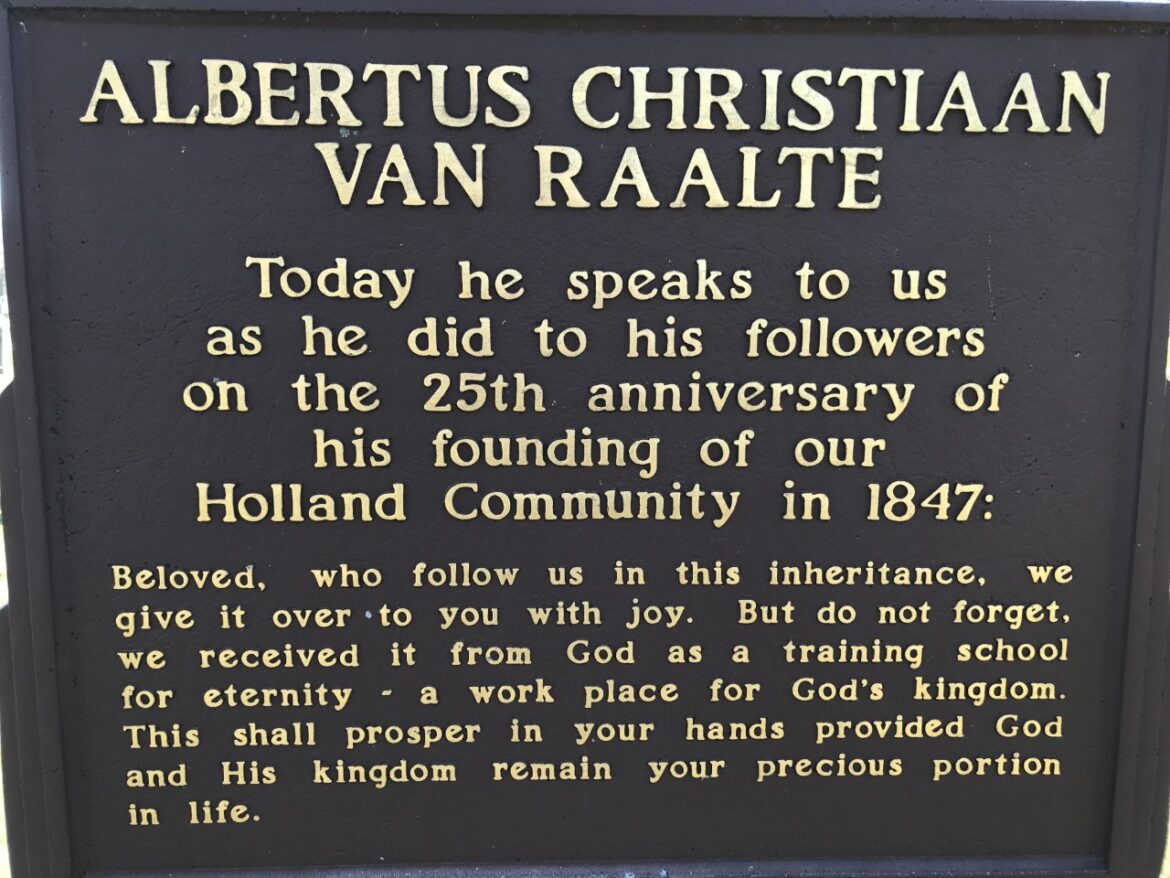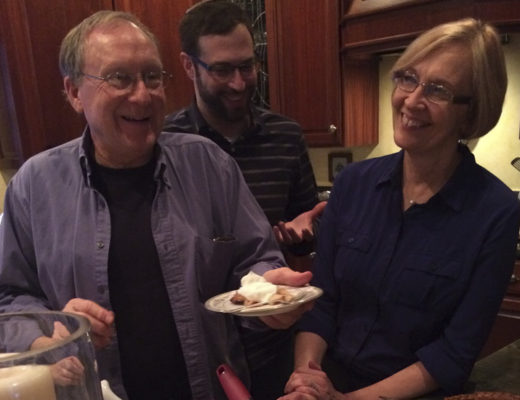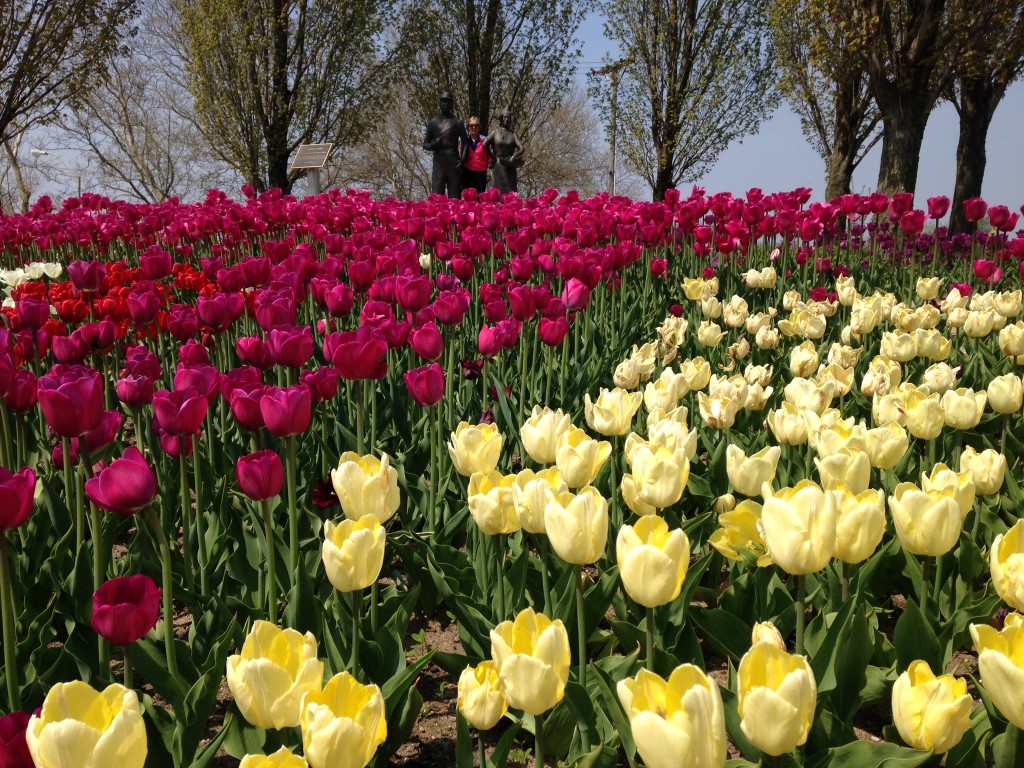
There’s a lot of excitement in my hometown of Holland, Michigan these days. While winter and spring continue to arm-wrestle with each other, bringing seventy-degree temperatures one day and snow flurries three days later, our town is gearing up for the annual Tulip Festival. At the same time, film crews have taken over our famous tourist attraction, Windmill Island, so actress Nicole Kidman can shoot her new movie there. Everyone in town is hoping to catch a glimpse of her tiptoeing through the tulips.
I love the excitement of Tulip Time. The annual eight-day festival has been held, uninterrupted, for the past 92 years—except during Covid, of course. It draws hundreds of thousands of people to see the three parades, to watch Dutch dancers in costume, to attend the concerts and shows, to taste Dutch food, and to see the multicolored tulips. Over six million tulips, in fact, have been planted throughout Holland. It’s a grand celebration of the town and its history, founded by immigrants from the Netherlands in 1847.
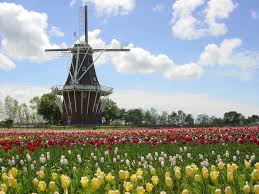
I don’t have a Dutch bone in my body, but I came to Holland for the first time to study at Hope College, which is affiliated with the Reformed Church. The early Dutch settlers founded the college in 1862 with the symbol of an anchor, based on Hebrews 6:19: “We have this hope as an anchor for the soul, firm and secure.” As a college freshman, I was walking past the iconic anchor one day on my way to class when a couple who were obviously tourists stopped me. (You could always spot tourists back in those days by the cameras and lens cases dangling around their necks.) “Are you a Hope College student?” the husband asked. I was. “Would you mind posing for us in front of the anchor?” I agreed, and got into position (somewhat awkwardly, I’m sure) holding my books and notebooks.
Just as the husband was about to snap my picture, his wife interrupted. “Wait a minute! Wait a minute! Are you Dutch?” she asked me. I was not. “Never mind, then,” she said, shooing me away. “We want a Dutch girl.” I guess I missed my chance to play a starring role in someone’s scrapbook.
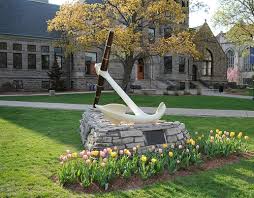
I was so intrigued by the town’s history that when my husband retired and we moved to Holland nine years ago, I decided to research the stories of the early settlers for a novel. Waves of Mercy was published in 2016 and is based on the memoirs of those first men and women. I was very surprised to learn why they left their homes and families in the Netherlands—a very civilized nation back in 1847—to settle in the forested wilderness of Michigan. It was because of religious persecution. As separatists from the state-sponsored church, they had faced heavy fines, harassment, and even imprisonment, simply for gathering to worship God. They braved the long ocean voyage and the hard work of taming the forest in order to seek the religious freedom that America offered.
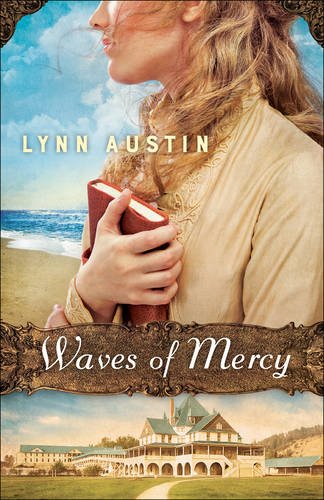
Their nearest neighbors were a tribe of Ottawa Indians. The nearest town, Allegan, was twenty-four miles away, accessible only by foot. During their first summer here, numerous settlers died from malaria. They lived in lean-tos and one-room cabins, yet their faith was so important to them that they began building this beautiful church in 1854, a mere seven years after they arrived. The story of Holland’s first citizens is truly a story of perseverance, faith, and hope.
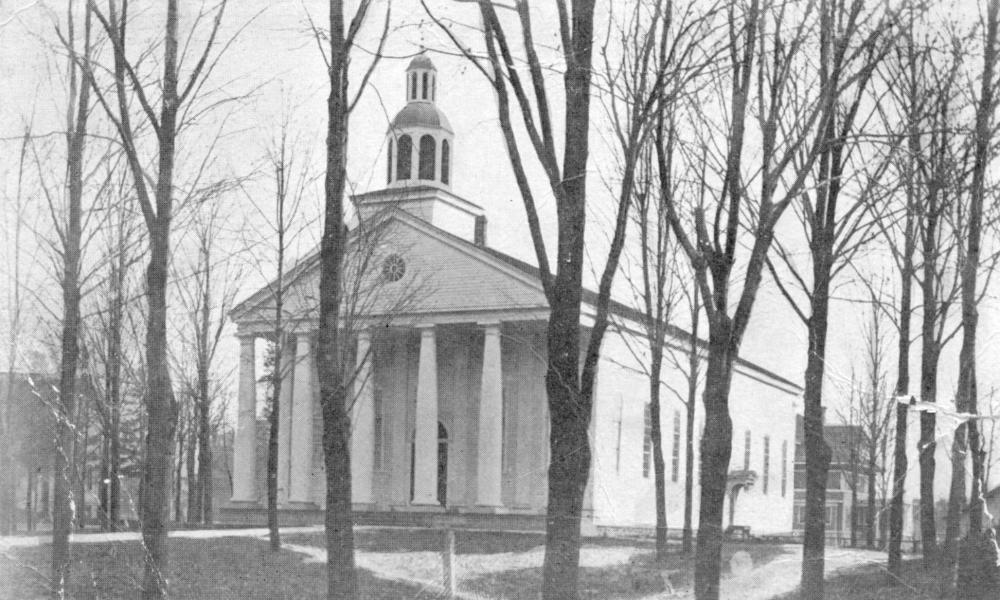
I was also surprised to learn that they didn’t settle in Holland in order to isolate themselves in a safe, exclusive community. Nor did they see themselves as missionaries with the goal of reaching the lost. They came as farmers and businessmen who wanted to serve Christ in their everyday work. They chose this location, perched on a small lake that feeds into Lake Michigan, because they wanted easy access to the developing nation’s waterways. This month the town celebrates their Dutch heritage, but Holland is also proud of the diverse cultures that call this town their home.
In a world that is increasingly divisive and often hostile toward Christianity, I sometimes long to hide away in my own little bubble of like-minded friends. Or else fight back by joining the chorus of angry voices on social media. What I’ve learned from Holland’s first settlers is that I am called to be a light in the darkness, a city shining on a hill. I practice my faith best when I leave the “holy huddle” to live and speak and interact with people around me in a way that brings glory to God.
From that first boatload of settlers, Holland has now grown to a town of 34,000 inhabitants. From that first church in the wilderness, the greater Holland area now has more than 170 churches. This plaque sums up what its founding father, Albertus Van Raalte had to say about the village of Holland:
